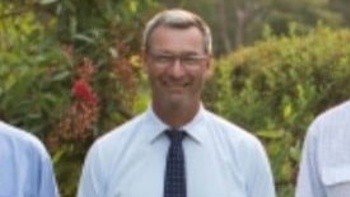A world-first scheme that will see New Zealand farmers pay for emissions by 2025 will "rip the guts out of small town New Zealand", farmers say.
The consultation document, Te tātai utu o ngā tukunga ahuwhenua - Pricing Agricultural Emissions, on the scheme says it will be introduced in just three years and is expected to be signed off by Cabinet in 2023.
The system of farmgate pricing has been worked on since 2019 after calls from the sector to have a farmgate emissions pricing system that would reward climate-friendly farmers.
The Government has committed to a 10 per cent reduction in methane emissions from agriculture and landfills by 2030, going up to a 24-47 per cent reduction by 2050, compared to 2017 levels. It comes alongside a net-zero emissions target for 2050.
The Government has accepted most of the recommendations made by the He Waka Eke Noa partnership but rejected two primary recommendations.
Prime Minister Jacinda Ardern, speaking to media alongside Climate Change Minister James Shaw and Agriculture Minister Damien O'Connor from a Wairarapa farm this morning, rejected suggestions the primary sector wouldn't look favourably on the proposal, as it had been formed with its input.
Federated Farmers national president Andrew Hoggard has strongly opposed the plan, saying it will "rip the guts out of small town New Zealand" by facilitating the conversion of sheep and beef farms in particular into trees.
"Federated Farmers is deeply unimpressed with the government's take on the He Waka Eke Noa proposal and is concerned for our members' futures," Hoggard said.
"We didn't sign up for this. It's gut-wrenching to think we now have this proposal from the government which rips the heart out of the work we did."
Ardern noted the proposal differed from the sector's wishes that levies paid via the scheme were set by the sector, and instead would be set by the Government.
- Farmers concerned about Govt's pending He Waka Eke Noa response
- Farming expert hopeful He Waka Eke Noa proposals will be given green light by govt
Ardern believed the Government setting the levy was a "more traditional" approach, compared with the partnership's preferred option.
The Climate Change Commission would play a "critical role" in setting the levy, Ardern said, by acting independently on evidence and research.
Shaw said modelling within the proposal gave him confidence it would allow New Zealand to achieve its climate change targets, potentially with less financial cost to farmers than expected.
However, he did acknowledge that modelling was not an exact science.
Despite Hoggard's criticism, Ardern was confident the proposal would be supported by the sector, as the "backbone" of the proposal was formed through consultation with stakeholders.
She acknowledged the proposal wouldn't be perfect and welcomed consultation, especially from those operating sheep, beef and deer farms for whom the proposal could have "unintended consequences".
The farmer-funded DairyNZ said there was still work to do on emissions pricing for agriculture.
"Today's Government announcement is another step toward an agricultural emissions pricing system – but there is still work to do to get it right, and make sure it is fair and practical for farmers," DairyNZ chair Jim van der Poel said.
Van der Poel said that while the proposal had adopted many key recommendations from the He Waka Eke Noa Partnership that were informed by farmer feedback, the Government had made significant changes that would be a focus for the sector during the six-week consultation.
"The Government has accepted a lot of what farmers told us was important to them during our sector consultation earlier this year," van der Poel said.
Act primary industries spokesperson Mark Cameron echoed Hoggard's concerns regarding sheep and beef farm conversion.
"Under the proposals, most sheep and beef farmers would be better off cashing up by selling their land for permanent carbon storage. Many meat processors will shut down, collapsing many small regional towns," he said.
"Act has always said the focus should be on working with the primary sector on more accurate measurement and management frameworks for methane emissions and ensuring there are no barriers to the uptake of new emissions reduction technologies."
According to the consultation document, the Climate Change Commission will now make the primary recommendation to Cabinet on price, a process in which farmers will be able to participate. Government ministers will make the final decision.
Initially, farmers were set to be folded into the Emissions Trading Scheme (ETS) if insufficient progress was made on farmgate pricing. However, under the new proposals, if the sector is not ready to start farmgate pricing by 2025, it will be subject to an interim backstop processor levy.
That would see importers and manufacturers paying for the emissions based on the amount imported or processed. Government ministers will recommend next year whether the processor levy needs to be brought in.
In the report, the Government admitted having concerns about the tight timeframe and that getting the system off the ground would "require a significant amount of work, relying on a tightly sequenced series of events".
That includes the risk that farmers, growers and the systems that needed to be in place would not be ready by 2025, causing a delay in pricing agricultural emissions – making it even harder and more expensive to achieve promised 2030 emissions reductions.
Take your Radio, Podcasts and Music with you









